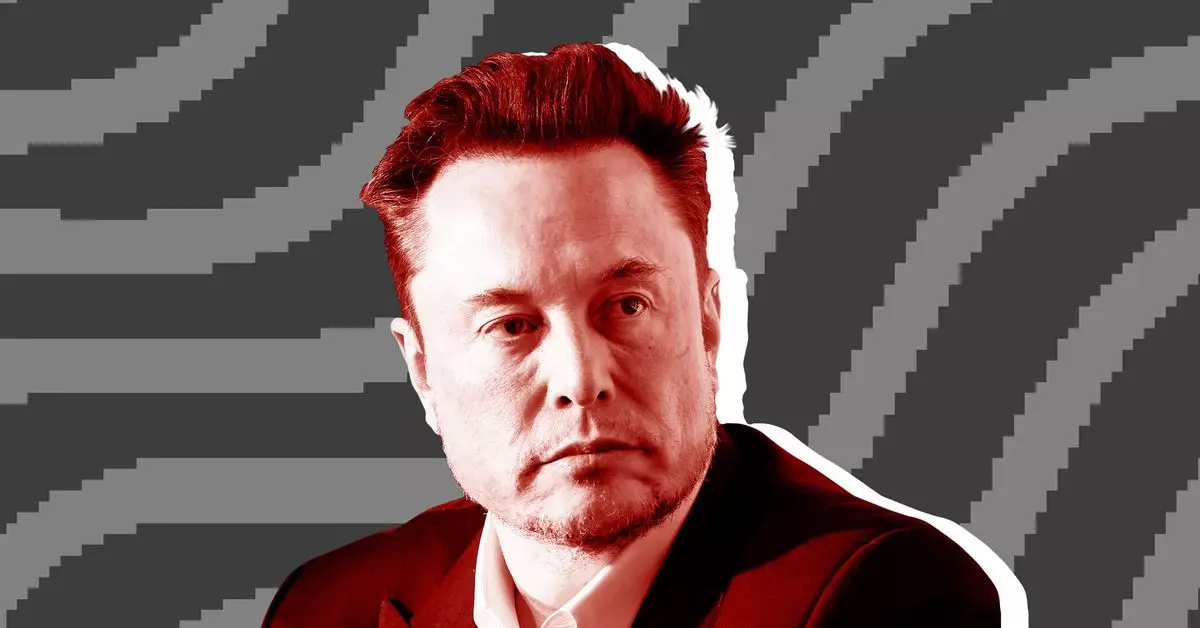In an unexpected turn of events, President-elect Donald Trump has unveiled plans to establish a new agency aimed at overhauling the United States government. Titled the Department of Government Efficiency, this venture, cheekily abbreviated as DOGE, is set to be led by none other than entrepreneurial mogul Elon Musk and political newcomer Vivek Ramaswamy. This initiative promises sweeping changes intended to dismantle bureaucratic inefficiencies, cut down on redundant regulations, and thereby reshape the federal agency landscape. While the implications of such a proposal are vast and potentially seismic, they raise questions about feasibility and the methods that will be employed.
The primary mission of DOGE revolves around “making government work for the people,” as stated by Trump in his announcement. The streamlining of federal governance is a long-standing goal amongst many Republican lawmakers, and the recruitment of high-profile figures like Musk adds a layer of credibility and public attention to the venture. Musk’s track record in the tech industry, from advancing electric vehicles to pushing the boundaries of space travel, lends itself to a perception that he could bring similar revolutionary strides to governmental operations. The stated objective of cutting waste from an enormous $6.5 trillion annual budget appears lofty and suggests an ambitious roadmap that advocates for radical change.
However, there’s a palpable tension between ambition and practicality. Any discussion of cutting approximately $2 trillion from the federal budget stirs immediate concerns among economists and policymakers alike. The possibility of reducing funding to essential services, including defense and social welfare programs, is contentious and warrants careful scrutiny.
One of the most intriguing aspects of the DOGE initiative is its proposed structure that includes operating “outside of government.” This raises critical questions about accountability, transparency, and the decision-making processes involved. By recruiting external advisors to influence government reform, the administration risks creating a divide between elected representatives and those appointed for their expertise. While collaboration with the White House and the Office of Management and Budget is vital, the source of ideas and guidance needs to be clearly defined to prevent the erosion of democratic principles.
Furthermore, the necessity for public engagement in this transformation cannot be understated. If the government is to be realigned in a way that reflects the needs and aspirations of citizens, comprehensive dialogue and feedback mechanisms must be established. Ensuring that the voices of the electorate are heard in the reform process will be essential in building trust and legitimacy around the initiatives pursued by DOGE.
Engaging tech leaders like Musk to lead governmental efficiency may also reflect a broader trend of integrating technology into public administration. As functions of government become increasingly intertwined with advances in technology, the potential for innovative solutions arises. Digital platforms, data analytics, and AI could be instrumental in identifying inefficiencies and generating actionable insights for budget management and policy implementation. However, the challenge remains in how to appropriately implement such technologies without infringing on privacy rights or complicating bureaucratic structures.
Moreover, the financial gains associated with civil services and private business partnerships require careful navigation. Musk’s dual role as a tech leader and now a governmental influencer may invite conflicts of interest, prompting serious discussions about the ethical implications of his influence on public policy and spending.
As the July 4th deadline of 2026 looms near, the establishment of the Department of Government Efficiency under the leadership of Elon Musk and Vivek Ramaswamy will undoubtedly be a focal point for national dialogue. The success or failure of this initiative could serve as a litmus test for future reforms. While the promise of a more efficient government is appealing, the efficacy of their strategies, the engagement of citizens, and adherence to ethical standards will ultimately determine the legacy of this move.
In sum, while the vision for DOGE may resonate with those yearning for a leaner and more visionary governance model, the intricate dynamics of implementation, stakeholder engagement, and ethical concerns necessitate thorough consideration. The evolving nature of this initiative serves as both a bold statement and a potential blueprint for future governance in America.


Leave a Reply